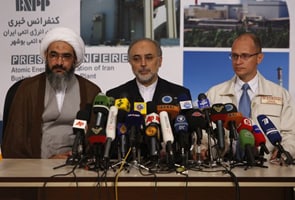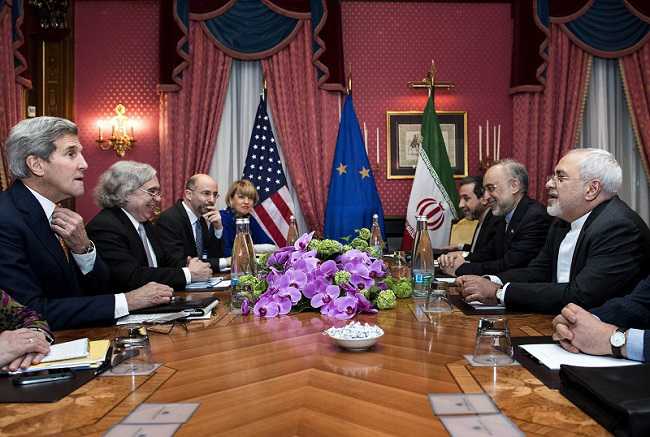Related reading: Facebook COO Sheryl Sandberg meets with lawmakers investigating Russia-linked Facebook ads
Blame ‘crowdtangle’ among others. As noted on their site: ‘the easiest way to keep track of what’s happening of social media. Other sites such as meltwater broadcasts that they are ‘influencers’ and then leaderboards are created such that real or hoax operations become a trending topic.
Lots of fake news gets blamed on bloggers posing as official media outlets while quoting unnamed sources and rightly so. Some of those blogs are concoctions of Moscow while others websites repeated fake stories stoking issues and divisions within the United States from Russia media outlets such as Sputnik News and RT.
Facebook is the location of choice for millions to park links and fake items resulting in Facebook often being referred to as Fakebook.
Moscow, along with out social media tech software in the United States created algorithms that counted ‘likes and ‘shares’ which then manifested unreliable stories and questionable sources. These analytic tools have become the norm across the world and consequentially having credibility and reliance on issues or stories has fallen.
It all boils down to communication, collaboration, branding, feedback and scoring results. You are the sheep, money is made from your activity on social media with every keystroke and you don’t get paid a dime….secret financial extortion, meaning without your knowledge unless you read ALL the mice type. Facebook is a master and frankly a player where you are being punked.
This is yet another form of cyber-warfare….
Facebook scrubbed potentially damning Russia data before researchers could analyze it further
- Facebook scrubbed thousands of posts shared during the 2016 campaign by accounts linked to Russia.
- The removals came as a Columbia University researcher was examining their reach.
- Facebook says the posts were removed to fix a glitch.
BI: Facebook removed thousands of posts shared during the 2016 election by accounts linked to Russia after a Columbia University social media researcher, Jonathan Albright, used the company’s data analytics tool to examine the reach of the Russian accounts.
Albright, who discovered the content had reached a far broader audience than Facebook initially acknowledged, told The Washington Post on Wednesday that the data had allowed him “to at least reconstruct some of the pieces of the puzzle” of Russia’s election interference.
“Not everything, but it allowed us to make sense of some of this thing,” he said.
Facebook confirmed that the posts had been removed, but said it was because the company had fixed a glitch in the analytics tool — called CrowdTangle — that Albright had used.
“We identified and fixed a bug in CrowdTangle that allowed users to see cached information from inactive Facebook Pages,” said Andy Stone, a Facebook spokesman.
Facebook’s decision to remove the posts from public view raised questions about whether the company could be held liable for suppressing potential evidence, given its role in the wide-ranging investigation of Russia’s election interference.
Albright told Business Insider that “because this is clearly a legal and imminent justice-related matter, I can’t provide much critical insight at this stage.
“I feel like my 10 rounds with the $500 billion dollar tech juggernaut are over,” he said.
Legal experts and scholars on the subject say scrubbing the data Albright used for his research is Facebook’s prerogative as long as it isn’t knowingly removing content sought under a court order or by government request.
“If Facebook has no reason to think that it should retain the data (subpoena, court order), then it can make choices about what appears on its platform,” said Danielle Citron, a professor of law at the University of Maryland, where she teaches and writes about information privacy.
Citron said Facebook and other private tech companies have in the past argued, successfully, that they have free speech interests and enjoy immunity from liability for the content posted by their users — immunity that extends to their ability to remove it if it violates their terms of service.
Albert Gidari, the director of privacy at the Stanford Center for Internet and Society, said it’s likely that Facebook has kept copies of “anything at issue as part of its preservation obligation” in light of special counsel Robert Mueller’s search warrant and the House and Senate Intelligence Committee subpoenas.
Gidari said that because there hasn’t been any allegation against Facebook itself, the company has no obligation, absent a court order, to maintain information “that later may be evidence.”
But the question becomes more complicated when considering the ethical obligations of a company whose tools were exploited by a foreign adversary to try to influence a US election.
Gidari, for his part, said he doesn’t think “any platform has an independent or ethical obligation to run a research playground for third-party data analysts.”
But Tom Rubin, a lecturer at Stanford Law School, said that Facebook’s “credibility as a global social platform and its responsibility as an internet giant require it to fully embrace an independent, urgent and public review of the facts.”
“Facebook’s Russia predicament is of its own doing — it controls the platform, runs the ads, and profits mightily,” said Rubin, who previously served as the assistant US Attorney in New York heading investigations and prosecutions of computer crimes.
“The investigation here is as serious as it gets: illegal and hostile foreign influence on the US presidential election,” Rubin said. “The issue confronting Facebook is the extent to which it should commit to complete transparency, and the answer to that is straightforward.”
Citron agreed.
“For transparency’s sake and for our broader interest in our democracy, people should know the extent to which they have been played by the Russians and how a hostile state actor has interfered with, manipulated, and generally hacked our political process,” she said.
That is what Albright said was his mission when he downloaded the last 500 posts shared by six accounts that Facebook has confirmed were operating out of Russia. Those accounts — Blacktivists, Being Patriotic, Secured Borders, Heart of Texas, LGBT United, and Muslims of America — were among the 470 pages Facebook shut down in September as part of its purge of “inauthentic accounts” linked to Russia’s Internet Research Agency.
The data Albright obtained using CrowdTangle showed that the Russians’ reach far exceeded the number of Facebook users they were able to access with advertisements alone — content including memes, links, and other miscellaneous postings was shared over 340 million times between the six accounts.
The other 464 accounts closed by Facebook have not yet been made public. If they are, an analysis of their combined posts would likely reveal that their content was shared an estimated billions of times during the election.




 p
p